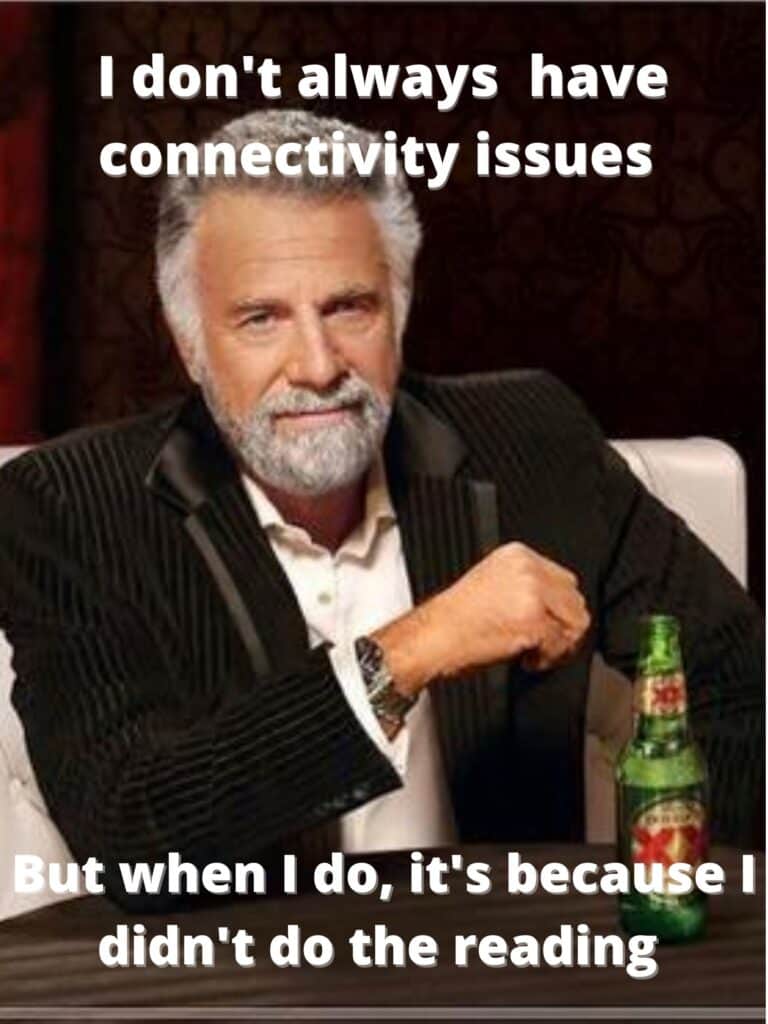
The concept of staying physically healthy has always seemed simple and obviously important to me. The need to be doing things on a regular basis to stay healthy as opposed to dealing with health issues when they arise is something that. But for some reason, with mental health, I haven’t always had the same perspective. Dealing with mental health has always seemed like something you do when you have a problem related to your mental health. The current state of our world has caused a change in that perspective. It’s no secret that COVID has taken a toll on our mental health as a nation and worldwide. The increased time spent indoors and decreased time spent with people, the loss of routine, the sedentary lifestyle that a lockdown dictates; all of these factors can cause damage. Early on in the lockdown, I was aware of the damage that was happening to my physical health (and tried to mitigate it) but did not take notice of what was happening to my mental health. This caused some not-so-fun effects and left me in a place where I needed to pick up the pieces and do some damage control. My strategy going forward has been much more proactive. I think it’s extremely important to invest time, energy, and even money in our mental health before there is a problem. Here are a few of the ways that have been working for me!
My strategies
- Exercise
I have found that regular, consistent exercise is very helpful even if it is fairly low-intensity and short duration. For me, that means 15-30 minute jogs about 4-5 times per week. Along with this exercise, a stretching routine has become just as important. We spend so much time at our desks that we need to stretch out those coiled up muscles even more than usual. The important part of this for me is staying consistent. If I jog once a week, all I get is tired once a week. When I’ve been able to stay consistent, I’ve seen longer term results with my mood and overall sense of wellbeing.
- Eat healthy
Probably the hardest one for me. With the packed schedule that we all have in this program, it’s really convenient to buy food out or have food delivered but those options are usually not the healthiest. And one of my favorite things to do is sit outside at restaurants and enjoy delicious food (and beer of course) with friends in the summer. But during our first term, I definitely did a little too much of those things and that had some negative effects on my physical and mental health. Eating better makes me feel better which makes me much happier! The time it takes to grocery shop and cook have been well worth it. And it also serves one of my hobbies since cooking for myself is usually healthier than eating out.
- Therapy
This is a new one for me! I started therapy about a month ago and I can’t recommend it enough! Having someone to talk to to process everything that’s going on with the pandemic, school, relationships, etc. has been extremely helpful. I’m a novice on this one so I don’t have many recommendations but I think it’s something to look into for anyone. And a great example of something that can be done as part of a mental health maintenance routine as opposed to being reserved for situations when there is a specific problem to be addressed. I held off on therapy for years because I didn’t think I needed it and I wish I hadn’t!
- Invest in your hobbies
Find those things you love to do that take you away from your screens, away from your work and school responsibilities and make time for them! For this term, the ones I want to make time for are cooking and hiking. That seems like a small list but I think it’s best to commit to making time to a few things so you’re less likely to skip them or prioritize other things. Stepping away from responsibilities is hard but I’ve found myself to be more productive in my school work overall when I’m spending less time on school and working to find a balance.
- Invest in relationships
This can be done in a lot of different ways these days. For me, I am so tired of zoom and facetime that I’ve decided to connect with a small number of people but really try to make that happen in person. Even an outdoor, socially-distanced park hang is so much more soul-refreshing for me than all the facetime calls in the world. I have a small group of people that I’m in close relationship with that I make sure to spend intentional time with them often. And I make sure to hug them often! We humans need that too!
- Find your limits and follow them
This has been one of the biggest changes I’ve made in the last couple of months. Realizing that I have limitations and those limitations are only reinforced by a program like the MAT. I’ve realized that I have social limits, service limits (I can’t always help a friend move, even if I want to), screen time limits, media consumption limits, and more. I’m still in the process of finding the right balance of each of these but learning to say no to social events, skipping that extra article on what Trump said this time, getting off my phone are all examples of things that.
- Meditation
Meditation, mindfulness, quiet time, whatever your preference is, I have found it very helpful to start my days with intentional time to be quiet and still and block out my regular thoughts as much as I can. This has allowed me to stay grounded, stay in control of my thought patterns, and most importantly to someone like me who deals with ADHD and an anxiety disorder, to quiet my mind. It’s taken some time and practice but this is probably the most important item on this list!
The hard part is that all of these things take time and effort. Both of which we are short on these days. But I have found that the time and effort they take is a small price to pay for the mental health benefits they bring. Every time I’ve decided to take a break from homework, even though I was short on time, and went for a quick jog or cooked a real meal or had a conversation with a friend, I’ve noticed that my productivity improves and I actually accomplish more than if I had stuck to my schoolwork. Find the balance that works for you! And share your findings with me because it’s always a work in progress!


What a thoughtful post. Applicable to anyone, anytime. But especially now. Kudos for reflecting on what you need and sticking with it.
We quit the gym – can’t picture going back to one for quite some time. But stocked up on exercise equipment to use at home. Still lots of walking and biking – especially in this weather. Still take our Pilates class via Zoom. Made our Saturday trip to PSU Farmers Market today. My wife’s a great cook – so I luck out there.
My one new routine is I’m teaching myself to juggle – someday I’ll be the life of the party!. Best part is they are 2 lb soft balls the size of grapefruit. Don’t roll anywhere when I drop them. Plus in addition to the focus and agility – working on my arms, upper body and core.
Alex, this is a marvelous post. All 7 points are important to remember. I think the last 2 are the hardest for me. I found pretty good limits this summer though and told myself no homework after 9pm and keep the hour leading up to bedtime to be a time of pure relaxation. The thing I am working on now is trying to spend as little time as possible in front of a screen. For example, waking up and not looking at my phone before showering and making breakfast – stuff like that. I hope you keep to these strategies and thank you for having your post serve as a good reminder for me to take care of myself.
Good point Justin. As we get into this 24/7 virtual connection – when do we turn it off